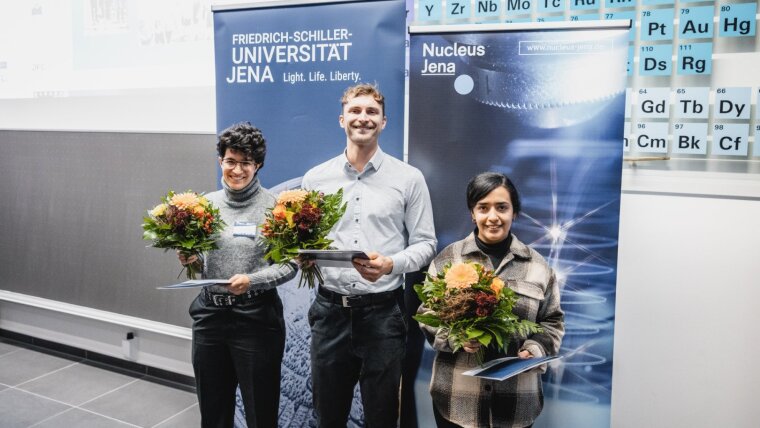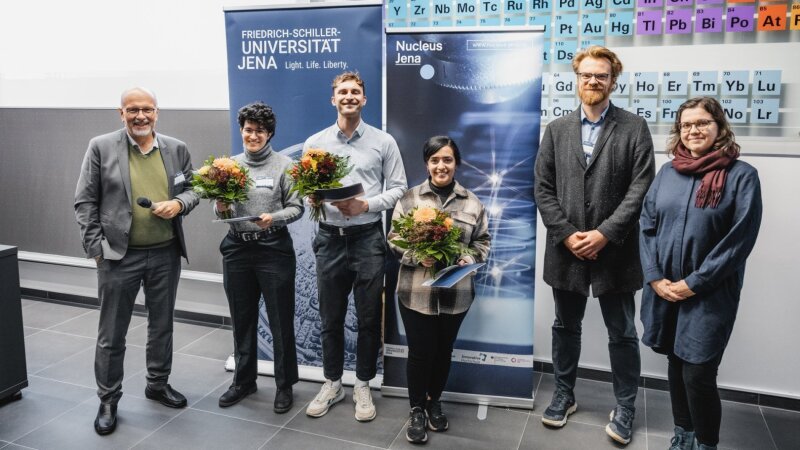
The Siegfried Czapski Publication Prize for outstanding publications by doctoral candidates within the Jena Alliance of Graduate Schools was awarded for the third time on November 6 as part of the LIFE Symposium. The winners are the doctoral candidates Tim Kaden, Raquel Alonso-Roman and Parastoo Akbarimoghaddam from the Leibniz-HKI and the University Hospital Jena (UKJ), who received the prize for their outstanding publication in the journal Biomaterials on the treatment of Candida albicans using an innovative gut chip model. By combining bioengineering, infection biology, and bioimage analysis, the publication marks a significant advance in interdisciplinary science at the interface between the University's LIGHT and LIFE profiles.
The authors developed a novel three-dimensional intestine-on-a-chip model to study fungal-host interactions and evaluate antifungal treatments. This innovative model mimics human intestinal tissue and allows the detailed study of Candida albicans invasiveness and translocation. The use of advanced microscopy and bioinformatics enabled precise quantification of infection processes. A key finding was that caspofungin reduced fungal biomass and altered microcolony morphology in wild-type strains, while showing limited efficacy against resistant strains, highlighting the need to address drug resistance.
The work not only advances our understanding of systemic candidiasis but also demonstrates the potential of organ-on-chip systems for evaluating antifungal therapies. By integrating light-based imaging with life science research, this study represents a remarkable achievement in interdisciplinary science with excellent future applications. The contributions of Tim Kaden, Raquel Alonso-Roman and Parastoo Akbari Moghaddam in leading and carrying out this project make them deserving candidates for the Siegfried Czapski Publication Prize 2024.
The prize, funded by the Carl-Zeiss-Stiftung, is endowed with 2,000 euros.
Publication: Kaden, T., Alonso-Roman, R., Akbarimoghaddam, P. et al.: Modeling of intravenous caspofungin administration using an intestine-on-chip reveals altered Candida albicans microcolonies and pathogenicity. Biomaterials 307 (2024). https://doi.org/10.1016/j.biomaterials.2024.122525
Award ceremony 2024
Image: Steffen Walther
